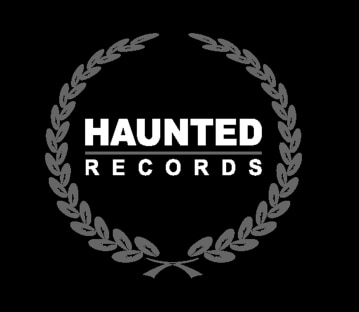How To Get a Music Manager?
Looking to get a music manager is something many serious artists delve into at some point in their careers. Particularly if you don’t have the time to focus on aspects outside of your music itself, or if you’re looking to take your career to the next level. .
The best ways for musicians to get a music manager is to raise their profile, improve industry network connections, and build their grassroots fan base to show a clear interest and momentum in the act.
Finding a music manager can open up many new doors to your career. After all, they can look after record deals and commercial activities while you focus on being in the studio and on stage.
However, getting to that point only happens if you know how to find the right manager for your act. So what should you do when looking for your next music manager?
What Is A Music Manager?
Before even searching for a music manager, you need to understand everything that the role encompasses. It’ll only be detrimental if you hire someone without knowing what they should do.
A music manager is essentially your representative who handles all of your official business outside of the musical sphere.
This covers a lot of different aspects which can include:
- Negotiating record deals
- Handling tour schedules and placements
- Put together contracts and deals
- Improve marketing and brand development
- Increase networking potential
They are essentially the business brain behind your act. Having the right manager around means that you won’t get swept away in handling every minute detail of your career. It’ll also help you avoid making any decisions that could potentially kill your career.
Why Should You Higher A Music Manager?
You will find that most semi-professional or professional acts will have a music manager of some kind. But why do acts bring in someone else to handle their affairs?
Much-valued expertise
For many people, a music manager often brings skills and experience that the artists themselves might not have. Many managers sell themselves based on their contact list and their experience within the industry.
Artists can then link up with someone with that skill set to take their brand to the next level. It only takes one connection with a producer or a talent scout to put together a deal of a lifetime,
Leaning into the right expertise helps artists break down barriers and access parts of the industry that were otherwise unreachable, particularly if they didn’t have the contacts before working with their representative.
Putting music first
Much of the time, musicians produce their best work when their mind is solely focused on music. There is nothing worse than trying to write new songs whilst also concurrently negotiating record deals.
Bringing in a music manager takes that pressure off the artist. Instead, the manager can spend most of their time overseeing contract negotiations and speaking with reps.
This gives both parties the chance to focus on the right details. An artist can get to creating their best work, meanwhile managers carve out the best deal for their clients. It’s a bonus for both parties involved.
A representative in your corner
If you’re in a band where multiple people are involved in making decisions, having a music manager also keeps everyone on a level playing field.
Nothing stalls a band’s momentum more than the act of being at odds over a major decision. By bringing in a manager, you have someone to go to bat with you if there are any disagreements with other parts of your team, like record labels and booking agents.
How To Get A Music Manager
Trying to get a music manager isn’t going to happen without doing some due diligence. Many of the best minds out there will be inundated with requests from acts of every type.
Therefore, you need to put in the leg work to understand the best ways to get a music manager that meet your needs. So how do you approach this scenario?
Building your brand
The biggest thing you can do is to sell yourself to the world. Find out who you are as a talent and what you bring to the table. Chances are there are dozens of acts making the same pitch as you.
Therefore, knowing how to sell yourself ups your chances over rivals instantaneously. And this isn’t just knowing your biggest hits and achievements.
It covers everything from social media activity, reputation in your local scene and how you are seen by peers in the industry.
There are some great ways you can impress potential managers though. For example, having an electronic press kit, which snapshots your act gives managers a great overview of your achievements.
Pairing this up with active social media pages and a filled tour schedule showcases what your brand is all about. From here, it helps give managers an impression of what you are like to work with.
Expanding your industry presence
Within the music industry, there are never enough new contacts to be made. Opening up new doors always puts together the chance to seize exciting opportunities if you explore them.
This is particularly true when looking to get a music manager. Good music managers are always going to have large networking pools in the industry. Therefore, expanding your contact network increases your chance of crossing paths with the right manager.
And the thing to remember is that these contacts can come from any part of the industry. Managers will not just be linked with label execs or big-time producers.
They will work with everyone from touring reps to studio engineers and even instrument techs. It means that every avenue is worth exploring when it appears.
Avoid inactivity
The one thing you need to avoid in your music manager search is inactivity. This means being idle and resting on your laurels.
Managers are always seeking talent that is both eager and always keen to move on to the next step. If you think that reps are going to fall into your lap just because of some big streaming numbers – it’s not going to happen.
With the industry always changing and evolving, any period of inactivity will stop managers from reaching out. Particularly if other acts are in a similar position but are able to keep momentum going.
Therefore, always think about what might be your next move if you are set on getting a music manager for your act.
Where To Find A Music Manager
If you are sure you know how to get a music manager, then you need to think about where you will find the best person to represent your act.
You aren’t ever going to be short on options. Sometimes, the right candidate might only be in the next room. So where can you find the right manager for you?
Within your sphere
For most acts starting out, they will often have someone close by who advises them on what to do next. This often comes in the form of experienced peers, local business partners or even friends or family.
This can make a great starting point for your first music manager. Being already familiar with your act, having some close to you helps sell your character to strangers with greater enthusiasm and more passion.
Not only does this familiarity work well for both parties, it can be a much easier relationship to work with. After all, they already know your personality and can judge what might be the best move for you at the time.
It can also be a much more affordable option for new acts who might not be able to afford to give away larger chunks of their earnings (in the form of commission) to more corporate entities within the industry.
Management agencies
If you are looking to break into a new market, there’s no better place to find a representative than a dedicated agency.
Management agencies are companies with one purpose in mind: to represent anyone who is in their client pool.
The great thing about management agencies is all their music managers are experienced professionals. It means they will have all the key contacts to let you hit the ground running in a market.
These music managers will have experience in all areas and will be well-versed in forging great deals for your act. No matter if it is with a sponsor, record label or touring partner.
You will find that these agencies do look for big commissions and can command 10%-20% of a deal if they are representing on your behalf. They’ll also want to make sure they’re compensated for their legwork in case you part ways, often in the form of a sunset clause.
What To Consider When Hiring A Music Manager
In the final stages of trying to get a music manager, you need to decide whether that person is right for you. Making the right decision goes a long way toward seeing if your music career succeeds.
And there are plenty of things you can do to make sure your final decision is a correct one. Especially when it impacts your professional livelihood.
Assess your long-term goals
The biggest thing to focus on is where both you and your potential manager see your career heading. This is the most important thing you must share – the same end vision.
There’s nothing worse than signing with a manager only to realize a year later that everything has gone downhill. That’s why discussing what you both want from the partnership is crucial throughout your relationship.
Being open and honest about what you want lets them find the right deals for you, and send you the right opportunities when they arise.
It’s what makes the difference between an act being a local star and one that fills arenas night after night.
Check their track record
Anyone can talk a good game. Music managers are no exception to this. They will be masters at selling their achievements to any potential client.
Therefore, do some homework and see if their claims are legitimate. Reaching out to previous clients and checking on past reviews is a great way to do just that. It’s a good way to ensure you aren’t going to be scammed by a fraud act.
If you are stuck between two choices, seeing who has the best track record in certain areas can help make the final decision that much easier. It is what separates the great from the good. And make the right choice for you at the right time.
Be finance-savvy
When looking to hire your music manager, you also need to be aware of everything that makes financial sense – both in the long-term and short-term.
This means being clear on what cut the manager gets from a deal and what you should be receiving. It’s something that needs to be reviewed constantly as your profile increases.
Over time, the cut may vary as well depending on how your career progresses so always stay on top of this year after year.
One big red flag to look out for is payment structure. Artist managers should only and always work on commission. Sometimes that can be gross, sometimes it can be net, but managers should never be taking up front fees for their work.
Final thoughts
In the end, there are plenty of things to look at when trying to get a music manager. As long as what you are looking for matches your goals, then it justifies bringing in an outside party to your act. However, searching for and actually hiring a music manager are two different things.
That’s why building your brand and expanding your contact list helps you find the right potential candidate. This doesn’t matter if you are hiring someone close to you or a dedicated professional seasoned in the industry. Once you find the right candidate, it becomes a matter of sharing the right goals and following through on their word. All this combines to help you get a music manager that makes your act shine over the competition.







![How To Start a Music Career [8 General Tips and Considerations]](https://www.bythebarricade.com/wp-content/uploads/2023/05/123027830_l-1-1024x512-1-768x384.jpeg)
